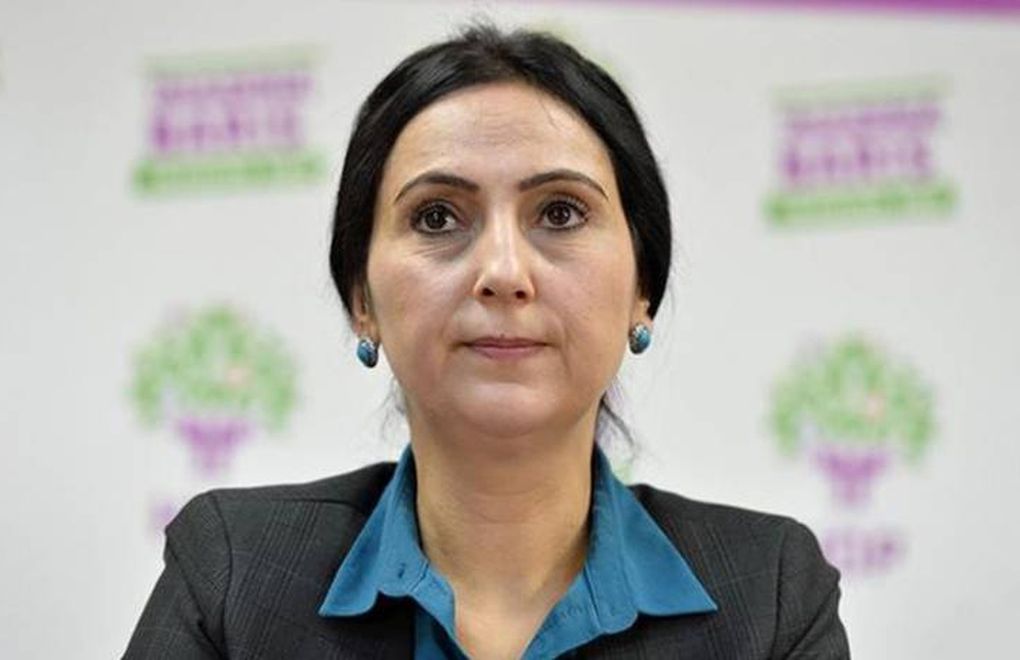Click to read the article in Turkish
Peoples' Democratic Party (HDP) former Co-Chair Figen Yüksekdağ stood before the judge today (December 10).
Arrested pending trial, Yüksekdağ had her 20th hearing at the Ankara 16th Heavy Penal Court. One of the judges of the court board has expressed a dissenting opinion to the continued arrest of Yüksekdağ.
Yüksekdağ attended the hearing from the Kandıra Type F Closed Prison via the Audio and Visual Information System (SEGBİS).
As reported by the Mezopotamya Agency (MA), the court has ruled by a majority of votes that Figen Yüksekdağ shall remain behind bars.
However, one of the judges of the court board, Murat Adıgüzel has indicated that the court has been ruling for the continuation of Yüksekdağ's arrest for 4 years and the expected aim from arrest has been fulfilled, considering the time she has already served behind bars:
"I do not agree with the opinion of the majority as I have been of the conviction that she is unlikely to spoil evidence considering her statements of defense and offenses charged so far and she is no flight risk considering her personality reflected in the file and as the defenses have been completed and there is no benefit in the continued arrest..."
The next hearing will be held on February 24, 2021.
CLICK - Dissenting opinion by judge: There is no legal benefit in Yüksekdağ's continued arrest
What happened?
Arrested since November 4, 2016, former HDP Co-Chair Figen Yüksekdağ has been standing trial on charges of "leading an organization", "propagandizing for a terrorist organization", "violating the law on meetings and demonstrations", "inciting the public to enmity and hatred", "provoking to commit crime" and "degrading the Turkish nation, the state of the Republic of Turkey and the institutions and bodies of the state."
The file of the case brought against Yüksekdağ consists of 7 different summaries of proceedings. The 92-page indictment demands that Yüksekdağ be sentenced to 30 years to 83 years in prison.
Her activities within the Democratic Society Congress (DTK) and some other political activities are brought against the politician as criminal evidence. (AS/SD)







